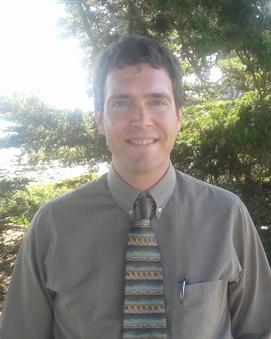Not your father's television...

Next Generation TV
Definition of "Humanist"
1. a person having a strong interest in or concern for human welfare, values, and dignity.
(according to Dictionary.com)
The simplified core of the Humanist moral code is:
The Golden Rule
~ We believe in treating others the way we'd like to be treated ~
A "Humanist" believes in doing his or her best to influence the world to be a healthy place where everyone on earth is offered an abundance of opportunities to live a happy and successful life.
“Humanism” is not a religion or a religious concept ...and could more accurately be described as the compassionate moral code of a community of especially thoughtful, kind people.
Cicero (106 - 43 BC) was most responsible for defining and popularizing the term "humanitas" which translates to modern English as "humanism". Cicero used "humanitas" to describe a philosophy of kindness and benevolence toward one's fellow human beings as well as a philosophy which places a high value on scholarship and intellectual integrity.
For Cicero (who was a lawyer) what most distinguished humans from brutes was speech, which he believed should enable reasonable people (applying "humanitas" or "humanism") to settle disputes peacefully and live together in harmony under the rule of law.
The next well-known instance of people describing themselves as “humanists” were a branch of Catholic clergy during the Renaissance. These “humanist” priests embraced
scientific innovation, the arts, and advocated humanitarianism. And even today (whether they realize it or not), most people who identify themselves as "Jewish" or "Christian" ...the most
highly educated members of all religions in fact ...tend to believe in Humanist values,
and tend to live by this kind and peaceful ethical code.
The first "Humanist Manifesto" was issued in 1933 at a University of Chicago conference and was signed by 35 people ...mostly ministers and theologians ...but signatories also included philosopher John Dewey (a founding father of psychology), several college professors, a dean, and a rabbi.
They identified Humanism as an ideology that espouses reason and ethics, as well as social and economic justice. They also called for science to replace dogma and the supernatural as the basis of morality and decision making.
All people who identify themselves as Unitarians, Deists, or Reform Jews (a.k.a. "Progressive" or "Liberal" Jews) are also identifying themselves as Humanists. Many people who don't identify with any religion adopt Humanism as a secular moral code. And many Liberal Christians (including many Catholics) also consider themselves to be Humanists.
The American founding fathers who identified themselves as "Deists" including George Washington, Benjamin Franklin, Thomas Jefferson, James Madison, and Thomas Paine were all Humanists.
Leonardo Da Vinci, Mark Twain, Neil Armstrong, and several Nobel Prize winners are also
included in the wikipedia's list of famous Deists. In fact, 22 of the 54 living Nobel Laureates
consider themselves to be Humanists.
Pioneers of psychology Abraham Maslow and Sigmund Freud were both Humanists, as was Chinese philosopher Confusius.
Many famous people were/are Humanists including...
John Lennon, Leonard Bernstein, Noam Chomsky, Arthur C. Clarke, Roger Ebert, Betty Friedan, R. Buckminster Fuller, Katherine Hepburn, Bill Hicks, Aldous Huxley, John Cusack, Seth MacFarlane, Bill Nye (The Science Guy), J. Robert Oppenheimer, Gene Roddenberry, Bertrand Russel, Carl Sagan, Hunter S. Thompson, Erwin Schrodinger, Charles M. Schulz (Cartoonist creator of Peanuts), Rod Serling, Benjamin Spock (Dr. Spock), Ted Turner (founder of CNN), Nikola Tesla, Gore Vidal, Kurt Vonnegut, Walt Whitman, Steve Wozniak (creator of first Apple computer), Frank Zappa, George Orwell, Jack Nicholson, Johnny Depp, Neil deGrasse Tyson, Robert Altman, Sean Penn, Julia Sweeney, Kevin Bacon, David Cross,
Matt Damon, Morgan Freeman, Jodie Foster, William Shatner, John Cleese, Stephen Hawking, Ernest Hemingway, Miley Cyrus, Douglas Adams (Hitchhiker's Guide to the Galaxy), Jamie Hyneman & Adam Savage (Mythbusters stars),
George Clooney, Leonard Nimoy (Mr. Spock), Bjork, Brad Pitt, Angelina Jolie, Ricky Gervais, Rowan Atkinson (Mr. Bean),
Natalie Portman, Dick Cavett, Larry King, Janeane Garofalo, Matt Groening (creator of "The Simpsons" and "Futurama")
...and many more.
Albert Einstein (the genius who came up with the theory of relativity) served on the advisory board of the First Humanist Society of New York and was an honorary associate of the British Humanist Organization.
The following are a few of Albert Einstein's written comments about his Humanist beliefs...
"The most important human endeavor is the striving for morality in our actions. Our inner balance and even our very existence depend on it. Only morality in our actions can give beauty and dignity to life. To make this a living force and bring it to clear consciousness is perhaps the foremost task of education. The foundation of morality should not be made dependent on myth nor tied to any authority lest doubt about the myth or about the legitimacy of the authority imperil the foundation of sound judgment and action."
"I do not believe that a man should be restrained in his daily actions by being afraid of punishment after death or that he should do things only because in this way he will be rewarded after he dies. This does not make sense. The proper guidance during the life of a man should be the weight that he puts upon ethics and the amount of consideration that he has for others."
"I cannot conceive of a personal God who would directly influence the actions of individuals, or would directly sit in judgment on creatures of his own creation. I cannot do this in spite of the fact that mechanistic causality has, to a certain extent, been placed in doubt by modern science. My religiosity consists in a humble admiration of the infinitely superior spirit that reveals itself in the little that we, with our weak and transitory understanding, can comprehend of reality. Morality is of the highest importance—but for us, not for God."
Humanist.tv agrees with Albert Einstein's comments about what he considered Humanism to be, and also endorses the International Humanist and Ethical Union's definition of "Humanism" stated below...Amsterdam Declaration 2002
Humanism is the outcome of a long tradition of free thought that has inspired many of the world’s great thinkers and creative artists and gave rise to science itself.
The fundamentals of modern Humanism are as follows:
1. Humanism is ethical. It affirms the worth, dignity and autonomy of the individual and the right of every human being to the greatest possible freedom compatible with the rights of others. Humanists have a duty of care to all of humanity including future generations. Humanists believe that morality is an intrinsic part of human nature based on understanding and a concern for others, needing no external sanction.
2. Humanism is rational. It seeks to use science creatively, not destructively. Humanists believe that the solutions to the world’s problems lie in human thought and action rather than divine intervention. Humanism advocates the application of the methods of science and free inquiry to the problems of human welfare. But Humanists also believe that the application of science and technology must be tempered by human values. Science gives us the means but human values must propose the ends.
3. Humanism supports democracy and human rights. Humanism aims at the fullest possible development of every human being. It holds that democracy and human development are matters of right. The principles of democracy and human rights can be applied to many human relationships and are not restricted to methods of government.
4. Humanism insists that personal liberty must be combined with social responsibility. Humanism ventures to build a world on the idea of the free person responsible to society, and recognises our dependence on and responsibility for the natural world. Humanism is undogmatic, imposing no creed upon its adherents. It is thus committed to education free from indoctrination.
5. Humanism is a response to the widespread demand for an alternative to dogmatic religion. The world’s major religions claim to be based on revelations fixed for all time, and many seek to impose their world-views on all of humanity. Humanism recognises that reliable knowledge of the world and ourselves arises through a continuing process of observation, evaluation and revision.
6. Humanism values artistic creativity and imagination and recognises the transforming power of art. Humanism affirms the importance of literature, music, and the visual and performing arts for personal development and fulfilment.
7. Humanism is a lifestance aiming at the maximum possible fulfilment through the cultivation of ethical and creative living and offers an ethical and rational means of addressing the challenges of our times. Humanism can be a way of life for everyone everywhere.
Our primary task is to make human beings aware in the simplest terms of what Humanism can mean to them and what it commits them to. By utilising free inquiry, the power of science and creative imagination for the furtherance of peace and in the service of compassion, we have confidence that we have the means to solve the problems that confront us all.
We call upon all who share this conviction to associate themselves with us in this endeavour.
IHEU Congress 2002
www.Humanist.tv is intended to be an Internet TV networkproviding video programming that promotes Humanist values...
…and will also function as a social networking site which Humanists around the world can
use to interact with one another. An Internet-based-global-Humanist-Community-Center.
The inspiration for www.Humanist.tv came as a result of this website’s founder’s wishto provide his children with an enjoyable alternative to the many confusinganti-Humanist messages that are often communicated by cable TV
and other Internet sites which are currently providing video programming.
So www.Humanist.tv will include filtering options for children, to give Humanist parents
entertainment options for their children they can really feel good about, while simultaneously
giving adult Humanists increased access to the kind of programming, information,
and discussions of ideas that haven't necessarily been easy to access
...until now.
(at the moment "now" means "once this site is up and running")
If you have any suggestions for this website, please contact:

